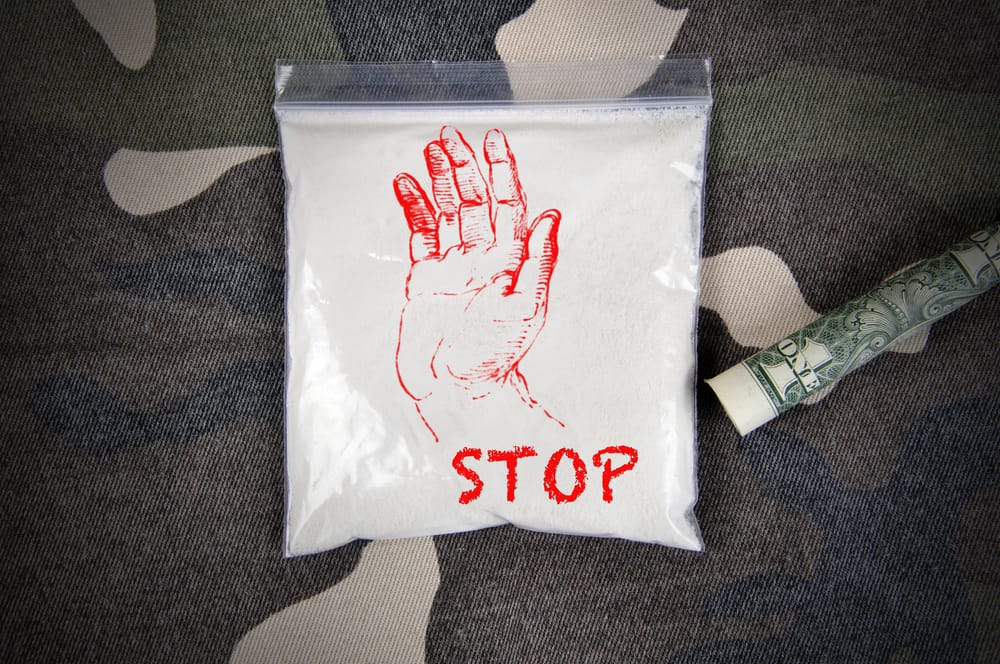We offer medical detox and multiple addiction treatment options in our
luxury treatment centres in Port Hope, Cobourg, and Ottawa.
How To Quit Cocaine: Step By Step Guide
You have finally realized the bad effects of cocaine and how it's starting to negatively affect your life. This realization is a very important one. Due to the scarcity of physical indications of cocaine addiction, many convince themselves that they are not addicted. By identifying that you have an issue, you've already overcome a major hurdle in the quitting process.
Full disclosure; this article is not a magic pill, it will not rid you of your addiction overnight. Few if any things in life are that simple. This article will, however, help you understand the addiction, how the process of quitting will impact your health, and provide guidance on how to set yourself up for success in your attempt to quit. We employ many of the strategies laid out in this article in our own inpatient cocaine addiction treatment and therapy programs. Many of our residents have found success with the very same tactics laid out in this article. They are happy again, relationships salvaged, back at work being the best selves they ever were.Why is Cocaine so Addictive?
Let's dig deeper into what cocaine is so you can learn how to stop using cocaine from the root. In our body, we have neurotransmitters – specifically dopamine, serotonin and norepinephrine (NE) – which regulate pleasurable sensations. Cocaine increases these levels, causing euphoric sensations… and quickly becomes addictive. As one of the most highly addictive stimulants, cocaine is considered one of the “top dogs” in the world of narcotics. With such a short high, you’d think that users would lose interest fast. On the contrary, the shorter the high, the stronger the high, the greater the euphoric sensations that compel and manipulate users to keep coming back for more. With cocaine, once used, the body changes and becomes increasingly desensitized, and those initial euphoric sensations are forever out of reach, despite the desperate attempts of those in the grips of this addiction. Try as you may – snort it, inject it or smoke it – that initial high will always remain elusive.Quitting Cocaine is Easier Said Than Done
Quitting cocaine is easier said than done. Not only is it difficult, but it's also dangerous. Just as starting cocaine comes with consequences, so does quitting. Some withdrawal symptoms you may encounter include:- Strong cravings for cocaine
- Anxiety
- Depression
- Paranoia
- Hallucinations
- Fatigue
- Restlessness
- Appetite problems
- Delusions
- Moodiness
- Variable energy
- Low enthusiasm
- Poor concentration
- Sleep issues
- Suicidal thoughts
Quit Cocaine In 5 Easy Steps
With the help of our own counsellors, experts at Livestrong.com, and Terence T. Gorski (an international expert on substance abuse), we’ve compiled 5 steps that, if done right, can get you off of cocaine in as little as 30 days. The 5 steps to get you to stop using cocaine are:- Fill up your days: Idle time only brings back memories, which may further the cravings. So fill up your schedule. Exercise, socialize, complete home projects, and enroll in classes. Invest in an agenda to write down some short-term and long-term goals and achievements you’ve already made. Why? Cravings are time sensitive – lasting about 2-3 hours. If you can exhaust yourself enough to fall asleep, you’re most likely going to wake up without the craving.
- Enrol in counselling sessions: As a continuation of quitting cocaine through a detox centre, one-on-one counselling will help you understand the various factors that may have driven you to use or keep using cocaine. You’ll also be able to break down magical thinking revolving around your use (e.g. “Cocaine can solve my problems”). Possibly considering family counselling may help repair damaged relationships due to cocaine abuse.
- Build a support system: Many may try to tackle quitting on their own in order to avoid any expectations from friends and family. But by sharing your experience with them, you draw motivation and support, as well as gain positive reinforcement for the tasks that you’ve made progress on. You can also build support systems by attending support groups such as “Narcotics Anonymous” or “Cocaine Anonymous.” The experiences of those who are going through similar situations may serve as motivation for your own journey.
- Abstain completely (and this is key): Quitting cocaine can become more motivational when you reward yourself. Maybe a new dress, a favourite food item, or an outing to a special event? Refrain from celebrating with alcohol or using other substances to deal with cravings. Such substances include other drugs such as marijuana, heroin, cigars, or alcohol. Complete abstinence is important because use of such substances lowers your resistance to cocaine cravings and could possibly cause you to return to cocaine abuse. Many cocaine users found this tip to be the most helpful when learning how to stop using cocaine.
- Admit to a treatment centre: Admitting yourself to an Ontario drug rehab allows a skilled medical team of doctors, nurses (and possibly a psychologist) to monitor the effects of withdrawal on your health. As soon as you're off the withdrawal stage, you're in to treatment that varies depending on where you go. For example, at our facility you go through a customized program that can involve different treatments plus some extras. As mentioned earlier, admission to a clinic is not the only step to be taken. Get rid of any cocaine paraphernalia. The last thing you’d want to do is come home, find these items and trigger a craving. Browse our treatment programs, which we can customize to suit your needs.
How To Quit Cocaine : Bonus Tips
Reading the above steps may seem easy enough, but actually following through is difficult… and we understand. So here are some extra tips to help you through the process, and kick cocaine for good.- Recognize your triggers: Know which factors trigger your cravings. Make a list of these triggers. By acknowledging these triggers, even if you aren’t able to avoid all of the triggers, you’ll be prepared for them. Think of this process as similar to building your own wall of China to keep unwanted influences.
- Exercise and keep a healthy diet: Exercise releases natural “pleasure chemicals,” which will help decrease the craving for the pleasure felt after using cocaine. Maintain a regular schedule for sleeping at night and waking up in the morning. Abusing cocaine tends to severely dehydrate the body. This is because users often have suppressed appetites and don’t consume adequate amounts of fluid. Eat appropriately portioned meals three times a day or smaller portioned meals throughout the day, and consume a lot of juices and water. It’ll take a lot of TLC for your body to recover from the effects of cocaine.
- Manage your stressors: Alcohol is known to be a common trigger for ex-cocaine users. If you also suffer from alcohol addiction then we might recommend seeking out alcohol rehabilitation treatment. But drugs and alcohol aren’t the only possible triggers. Excessive use of caffeine and nicotine are also factors that lower inhibitions and increase your susceptibility to cocaine cravings. Poor stress management is another. Engage in stress-relieving activities that can help your caffeine/nicotine use as well. Examples of some of these stress-relieving activities include meditation, relaxation exercises, regular rest periods and yoga.
- Mind your friends: Associated with cravings are thought triggers, feeling triggers and behavioural triggers. Merely getting rid of paraphernalia doesn’t stop triggers that are psychological. Change the group of friends you associate with. No longer associate yourself with the friends from your “using days”. They may just increase your cravings… just because of the thoughts you associate with them! Pick your friends wisely.






